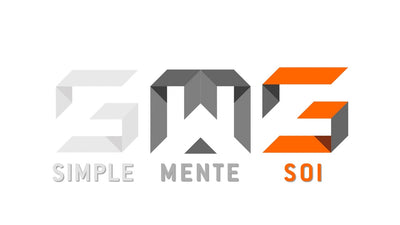The Basic Sense of Self: Mindfulness Benefits of the Advanced Meditation Alters Consciousness - Part 1

The Basic Sense of Self: Mindfulness Benefits of the Advanced Meditation Alters Consciousness
We at Simplementesoi believe that exploring one's true self is a profound and often introspective journey. Our thoughts, actions, and interactions shape our identity at its core. Advanced meditation techniques can serve as powerful tools to enhance our understanding of self. This comprehensive article delves into the concept of self, including its development and how advanced meditation can transform our consciousness.
Sense of Self: What It Is and How to Build It
The sense of self can be described as an understanding of one's self that is developed through one's set of beliefs, attitudes, and opinions that revolve around one's perceptions of oneself based on the understanding of whom they are. That is, it refers to realizing the roles played in society, experiences, values, and a general view of life. This is very important to maintain, as it will help us find our way into the world and make choices in a manner that really shows who we are. Building a strong sense of oneself takes reflection, knowing where one's strengths and weaknesses lie, and keeping one's word with oneself in matters concerning his or her principles.
An effective way to start building this strong sense of self is through mindfulness practices. These practices encourage one to be present in the moment, observe thoughts without judgment, and better understand one's own inner workings. This awareness helps distinguish between one's true self and the external influences that shape one's perceptions.

Factors That Can Influence Your Sense of Self
There are various factors that can shape and influence our sense of self:
- Personal experiences, including past occurrences—and particularly those during formative years—greatly influence our self-concept. Positive experiences serve to bolster self-esteem, and negative ones only cause self-doubt and insecurity.
- Relationships with family, friends, and significant others are, in turn, equally potent in determining one's personality. Good relationships build the sense of self; bad ones break it down.
- Cultural and societal norms: The culture and society we are embedded in will impose certain norms and, subsequently, expectations that will further mold one's self-perception. Conforming to such at times leads us so far from who we are.
- Personal achievements and failures: Successes and failures in different aspects of life, including work, school, and other personal goals, all make up how one views themselves. Achievements might also make us feel good and confident, while failures help us learn important lessons for growth.
We at Simplementesoi believe that understanding these influences allows individuals to take a more proactive approach to developing a healthy and resilient sense of self.

Ways of Building a Strong Sense of Self
To build a strong sense of self, engaging in practices that promote self-awareness and personal growth is imperative. Some strategies for this are:
- Self-reflection: Take time, again and again, to consider your thoughts, feelings, and ways of behaving. One can very effectively reflect through journaling.
- Set personal goals: Define what happiness and success mean to you and set goals that align with your things of value. This will help find a sense of purpose and direction.
- Develop resilience: Learn to cope with challenges and setbacks in a healthy way. Building resilience involves the acceptance that failures are part of what one has to deal with and should be seen as an opportunity for growth.
- Seek feedback: Constructive feedback from trusted individuals can provide insight into your areas for improvement and strengths.
- Engage in activities you enjoy: Spend time participating in a hobby or doing something you enjoy, as this can help improve your overall well-being. This way, following these strategies one can create a strong and authentic sense of self to guide the actions and decisions.
Values and personal beliefs play a vital role in shaping one's identity. Throughout the journey from birth to death, the body undergoes constant changes, while the mind hosts numerous emotional and conceptual experiences. Despite this, we tend to attribute qualities of permanence, uniqueness, and independence to the self. As we start to perceive this self as highly fragile, needing protection and gratification, feelings of aversion and attraction emerge – aversion towards anything that threatens the self, and attraction to everything that pleases it. These fundamental emotions, attraction, and repulsion, give rise to a multitude of conflicting feelings.
Driven by fear of the world and others, apprehension of suffering, and anxiety about life and death, we believe that by withdrawing into the ego bubble, we will find safety. By constructing the illusion of separation from the world, we hope to evade suffering. We at Simplementesoi believe that Paradoxically, ego-clinging acts as a strong magnet that attracts suffering.
Our attachment to the concept of a separate "self" intensifies feelings of vulnerability and insecurity. It fosters self-centeredness, obsessive thoughts, hope, fear, and creates distance from others. This imagined self becomes a perpetual victim of life's circumstances.
Where does the self exist then? It cannot solely reside in the body, as when we say "I am proud," it is our consciousness that experiences pride, not our body. Is it in our consciousness then? When we claim, "Someone pushed me," it was not our consciousness that was pushed. The self cannot be outside both the body and consciousness. The resolution lies in viewing the self as a mental or verbal label attached to both the body and consciousness. The self is merely a construct.
Stay tuned for part 2 of this article...


Leave a comment